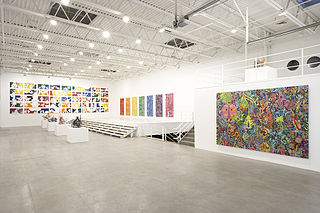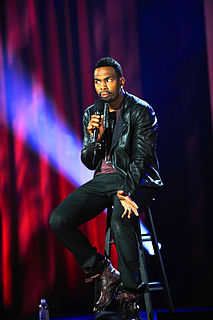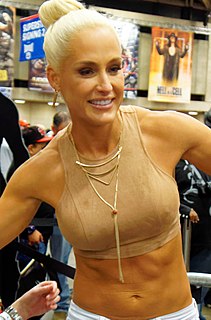A Quote by Denis Villeneuve
The truth is, when I started to make films, I was terrified. I had a huge difference in what I was writing in the screenplay and what was on the screen after. Sometimes there was a big gap. Now, the more I have experienced, the more I do movies, the more I feel that the dream is closer to the screen. It's coming with experience.
Related Quotes
My reason [for making my own paint] is to force a real-time experience of the work. Most work today is experienced by reproduction, and more specifically by computer screen, like jpegs, but an RGB simulation of fluorescent will never fully accurately depict some colors. For example, our eyes are a lot more sophisticated than you might assume. You can feel a lot more going on on the surface of a canvas than you can on the surface of a screen.
When we go to the movies, we identify with the characters we see. That's why we go to the movies; we have a voyeuristic experience; we have an out of the body experience. The screen is more real than our thoughts are at the moment we are looking at the film and we place ourselves in the place of the people on the screen, and when they behave nobly, it makes us feel noble, when they are sad and when they have lost love, we feel sad; we can identify with that.
I like the idea of sitting in a theater with a bunch of people. With technology now, people are getting more and more isolated. I like the community coming around the story. You don't have that with a DVD. People go home, they're tired from work, they can turn it off. It doesn't make you commit the same way, if you can control the movie. More difficult movies, it's too easy to turn them off. All the time, I see movies I know if I had seen it on DVD, I wouldn't have hung with it. If you see it on the screen, you hang with it and it pays off better than a movie you can easily sit through on DVD.
I feel like my job as a storyteller and director is to create an experience where the audience forgets they're in a cinema and can get lost in the story. Things popping out of the screen call attention to the artifice of what you're doing, so I use 3D as more of a window into a world behind the screen.
The most difficult thing has definitely been movies. From a comedian's standpoint, you think being real big is the best thing, but with movies, the screen is huge, you're big anyway! Also, coming from a TV personality - MTV was all about high energy and selling the hottest video - I had to learn to [take it down]. A lot of characters I'm playing are not necessarily that kind of guy.
My writing became more and more minimalist. In the end, I couldn't write at all. For seven or eight years, I hardly wrote. But then I had a revelation. What if I did the opposite? What if, when a sentence or a scene was bad, I expanded it, and poured in more and more? After I started to do that, I became free in my writing.
[on the screenplay for "When Harry Met Sally"] It struck me that the movies had spent more than half a century saying, "They lived happily ever after" and the following quarter century warning that they'll be lucky to make it through the weekend. Possibly now we are now entering a third era in which the movies will be sounding a note of cautious optimism: You know, it just might work.





































